Cruz Reynoso, first Latino justice on California Supreme Court, dies at 90
- Oops!Something went wrong.Please try again later.
Cruz Reynoso, the son of migrant farmworkers who became a giant of civil rights law and was the first Latino justice of the California Supreme Court, died on Friday with his members of his large family at his side.
Reynoso was 90 and had been in hospice care in Oroville recently. A cause of death was not disclosed.
A fixture for years at the UC Davis School of Law, Reynoso was vice chairman of the U.S. Commission on Civil Rights and, in 2000, received the Presidential Medal of Freedom from President Bill Clinton.
“Cruz Reynoso is the son of Mexican immigrants who spent summers working with his family in the fields of the San Joaquin Valley,” Clinton said at the White House ceremony where Reynoso received the highest civil honor given in the United States. “As a child, he loved reading so much, his elementary school classmates called him el profe, the professor. Later, some told him to put aside his dreams of college, saying bluntly, they will never let you in,”
“But with faith in himself and the values of our country, Cruz Reynoso went on to college and to law school, but never forgot his roots.”
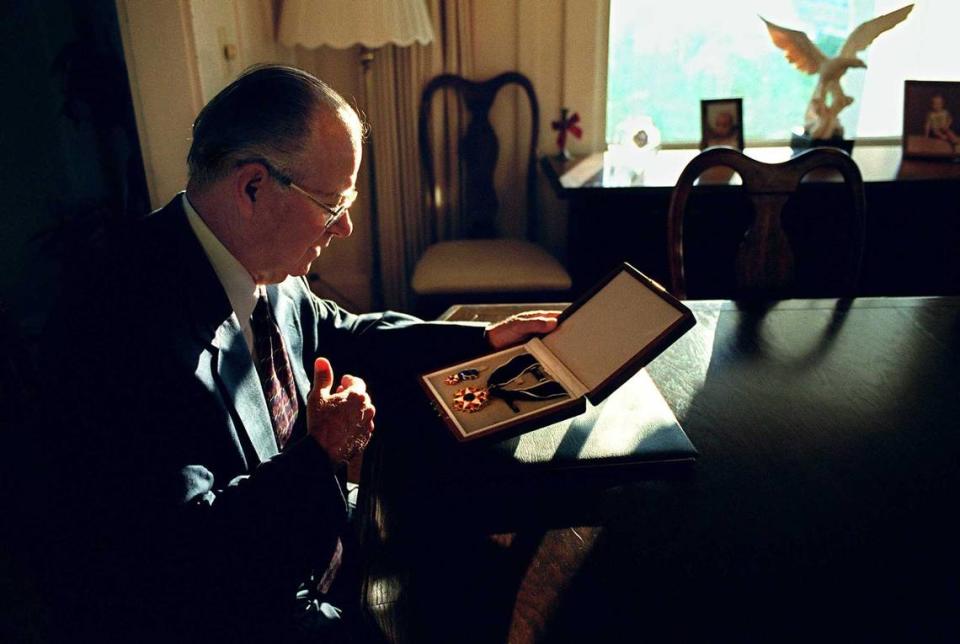
Reynoso never did forget that he was born in the Orange County city of Brea and was one of 11 children. As a boy, Reynoso worked the harvest fields throughout California to help his humble family earn money. That formative experience motivated him to study hard and pursue an education that would liberate him from the fields and move him to represent poor people who needed legal help.
Reynoso’s first college experiences were emblematic for a young man of his station in life. He attended Fullerton Community College and Pomona College. Reynoso left California and served in the Army. He got married to his first wife, Jeannene. He returned to California and graduated from UC Berkeley School of Law. He moved to El Centro, Imperial County, and built a legal career representing clients from families of modest means, much like his family.
Reynoso rose to be the director of California Rural Legal Assistance, a nonprofit founded in 1966. Its mission, as stated on the CRLA website, was “to help rural communities because those communities were not receiving legal help.” CRLA still provides free legal services to farmworkers.
During those heady years in California history in the late 1960s and early 1970s, Reynoso played a vital role in the movement to uplift the poorest workers in California, mostly farmworkers from Mexico like Reynoso’s parents. At the same time, Reynoso was running CRLA, Cesar Chavez was garnering national attention as a labor leader gaining rights for farmworkers and bringing attention to their plight.
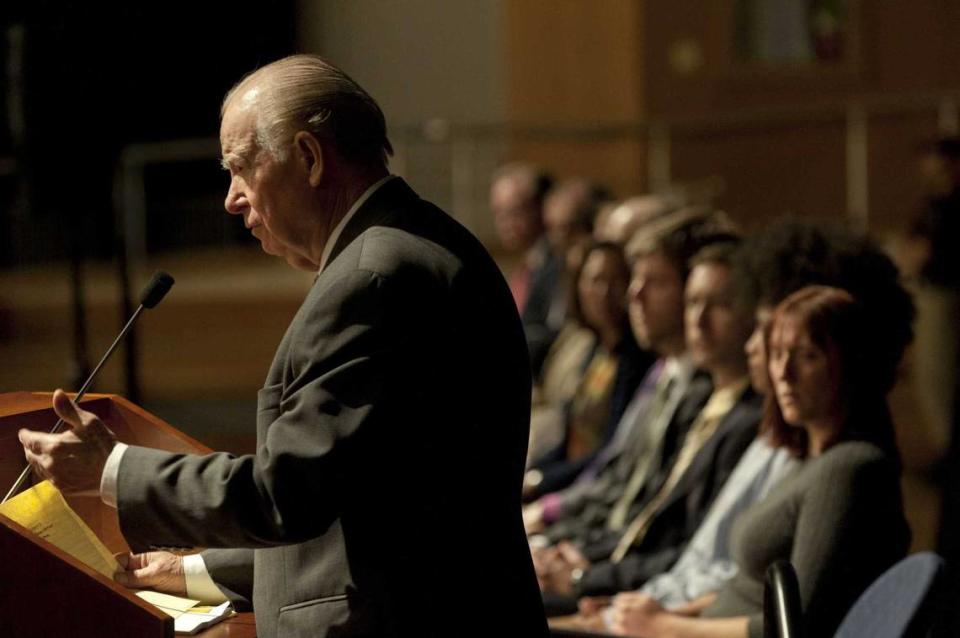
Although they each had their role to play and had different missions, both Reynoso and Chavez found themselves at odds with then-California Gov. Ronald Reagan, who was aligned with business and agricultural interests.
Reagan tried many times to defund CRLA but the organization endured. One of the biggest cases won by CRLA while Reynoso was its director was the 1970 case of case Diana vs. California State Board of Education.
It centered on Latino children who were incorrectly assessed by their school and labeled mentally challenged. The pupils were funneled into special education classes when, in reality, they were simply new English learners. CRLA lawyers filed a class-action lawsuit on behalf of students in the Monterey County town of Soledad.
“CRLA won a consent decree that allowed non-Anglo children to choose the language in which they would respond on IQ tests,” wrote the Salinas Californian in 2016. “It banned verbal sections of the test. It also required state psychologists to develop an IQ test appropriate for Mexican Americans and other non-English-speaking students.”
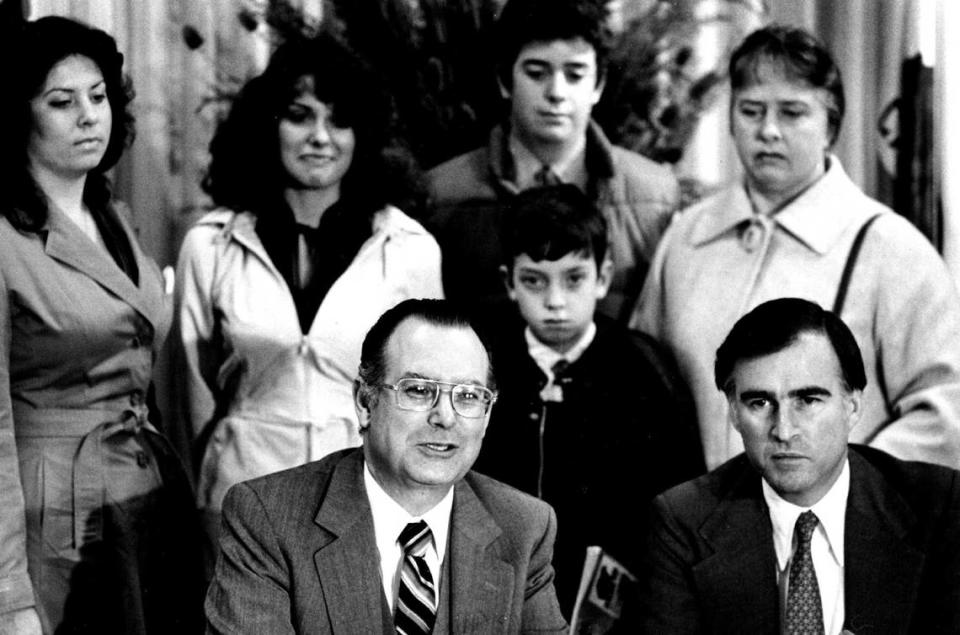
This time in Reynoso’s career was depicted in the 2011 documentary, “Sowing the Seeds of Justice.” After leaving CRLA in 1972, Reynoso taught law before he was appointed to the state’s 3rd District Appellate Court in Sacramento. In 1982, Gov. Jerry Brown appointed Reynoso to the state Supreme Court, the first Latino to ever be named to the state’s high bench.
Reynoso was considered a thoughtful jurist but became embroiled in a political controversy that ultimately ended in his removal in 1987. In a sign of how much politics have changed in California, proponents of the death penalty painted Reynoso, Chief Justice Rose Bird, and Associate Justice Joseph Grodin as being soft on crime. The three were recalled by voters.
Joseph Heller, a notable Sacramento lawyer who wrote the 1978 death penalty initiative that California voters approved, disagreed with the campaign against Reynoso, Bird and Grodin.
“He was a very bright judge, a very capable judge who tried to do the right thing in cases,” Heller said of Reynoso in an interview with The Sacramento Bee in 2007. David De Alba, now a Sacramento Superior Court Judge, clerked for Reynoso in the late 1970s and remembers his old boss with reverence.
“He was a gentle giant. The most humble person I ever met,” De Alba said. “He was loved by many and admired by all.”
De Alba said Reynoso became a mentor to many of Sacramento’s and California’s leading legal figures. “Justice Reynoso was a dear friend, mentor, and model public servant because of his humility, empathy, compassion, and unwavering dedication to the rule of law,” said Luis Cespedes, a Sacramento lawyer who was recently named Judicial Appointments Secretary by Gov Gavin Newsom.
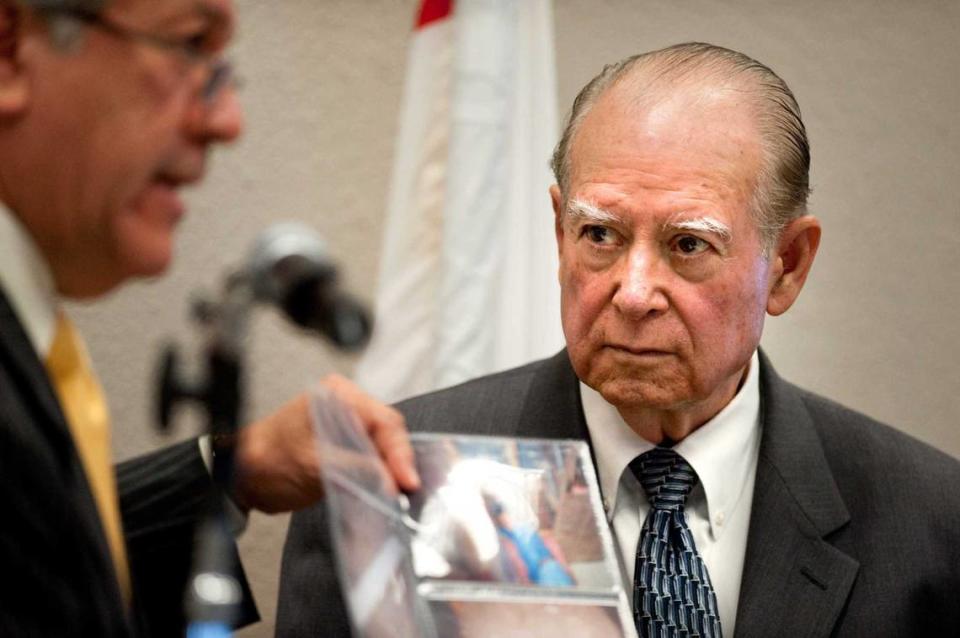
“Cruz was an exceptional human being, a civil rights attorney and first Latino to sit on the California Supreme Court,” said Melinda Guzman, a prominent Sacramento lawyer and former trustee of the California State University system. “Above all he was a family man, a man of integrity and ethics and he used his voice to empower all in need. He was so supportive of my legal career and family. I loved this man who earned his angel wings on Earth for all he did.”
After his recall, Reynoso became a professor emeritus at UC Davis School of Law, living in Herald, the community east of Galt, with Jeannene until she died in 2007. He married Elaine Rowan in 2008, who died in 2017.
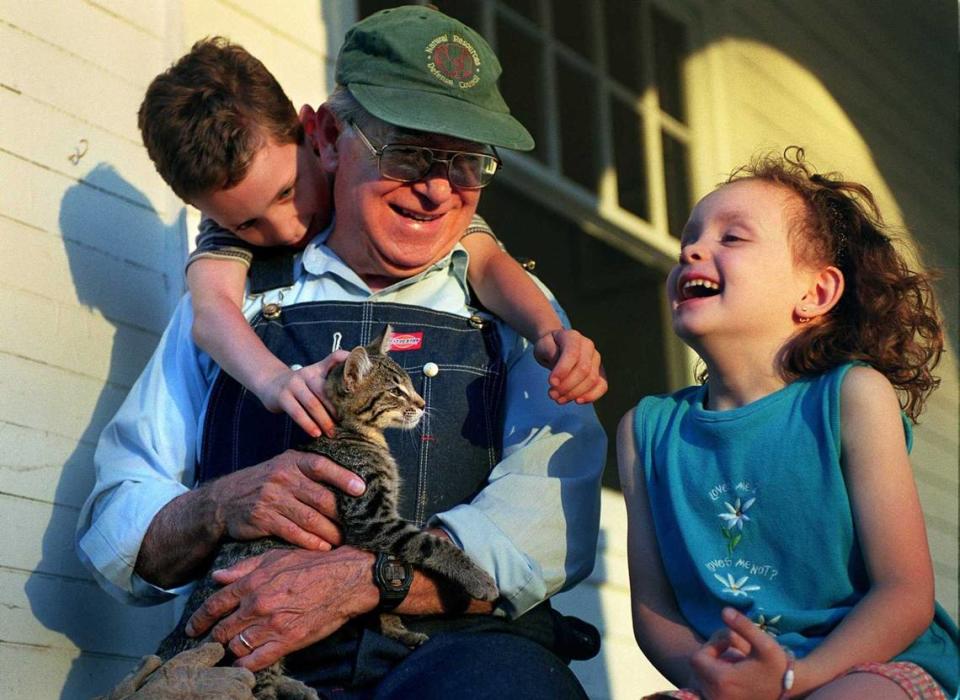
According to a Facebook post by one of his children, Reynoso is survived by “four brothers, four sisters, his four children and their spouses (Trina and Duane Heter, Ranene and Bob Royer, Len and Kym ReidReynoso, Rondall and Pamela Reynoso) along with two stepchildren and their spouses (Dean and Laudon Rowan, Hali Rowen and Andy Bale) seventeen grandchildren, three step grandchildren and two great grandchildren.”
Memorial arrangements are pending. In his 2007 interview with The Bee, Reynoso described his philosophy of life: ““In fighting the battles, you may end up losing most of them,” Reynoso said. “But if you don’t fight, you lose them all.”

